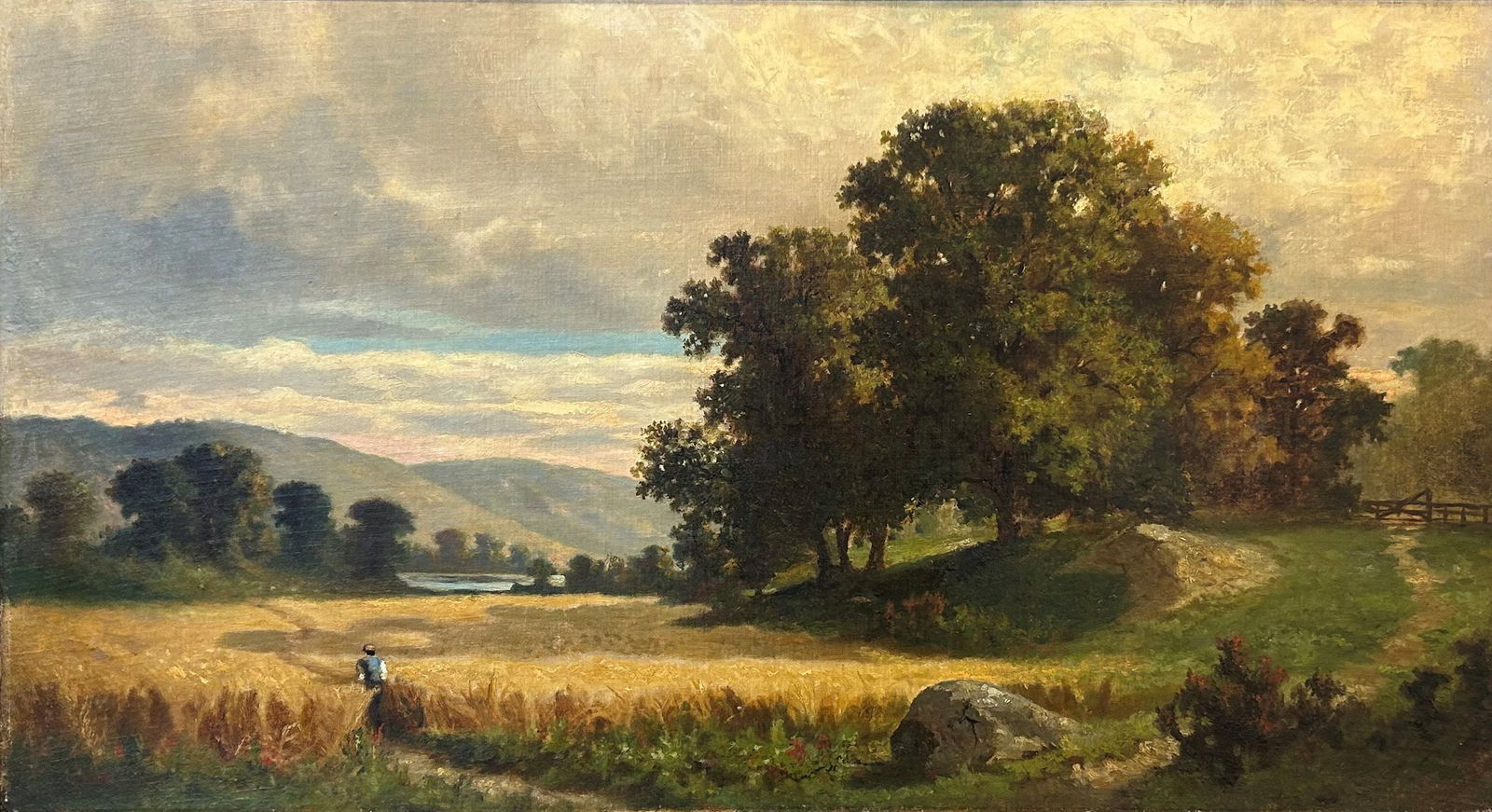

Edward Mitchell Bannister American, 1828-1901
The painting's bucolic imagery of agricultural workers walking along picturesque paths, tracks and roads~ across crop fields and pasture land, up gentle hills, by rivers, or through shaded woodland is a constant throughout all phases of the artists career, reflecting not only his long-term aesthetic allegiance to American and French Barbizon, but also his childhood roots in Canada, where he helped with livestock on the Hatch farm in the timber town of Saint Andrews, and his close artistic, en plein air engagement with the New England agrarian landscape. In this work Bannister employs a compositional theme of the rural track, depicting both groups and solitary farm workers, and other country folk, some driving sheep or cows. The artist depicts his figures with wood cutting tools to identify characters' hands to identify their specific type of labor and to underline their rusticity.
Edward Mitchell Bannister was one of the few African American painters of the nineteenth century to win significant recognition. He grew up on the coast in New Brunswick, and spent several months working as a ship's cook. He lost both his parents when he was young and moved to Boston, where he took sculpture classes and learned photography. Bannister faced an uphill battle to become a professional artist. In 1867 the New York Herald stated that "the Negro seems to have an appreciation of art" but went on to assert that blacks were "manifestly unable to produce it" (Driskell, Two Centuries of Black American Art, 1976). Bannister decided to prove the article wrong and in 1876 achieved his goal when one of his paintings won a medal at the Philadelphia Centennial Exposition. When he arrived to claim his prize, however, he was refused entry because he was black. Bannister was a founder and member of the Providence Art Club and was an original board member of the Rhode Island School of Design.
Join our mailing list
* denotes required fields
We will process the personal data you have supplied in accordance with our privacy policy (available on request). You can unsubscribe or change your preferences at any time by clicking the link in our emails.

